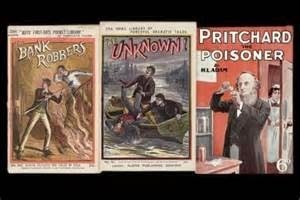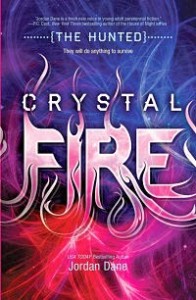I learned early on that I can’t write the serious suspense plots that I do and NOT add humor. People/characters use humor when they’re nervous, or a fictional buddy is a cynical smart ass and great comic relief at key times. Laser sharp wit can become a way for any writer to stand out in a crowd of authors or a slush pile.
I remember reading Robert Crais in an airport when Elvis Cole was on stakeout and spied a small dog taking a dump in a yard, ‘straining so hard its back hunched double.’ Elvis thought, “Awful, the things you see in my line of work.” That line made me laugh aloud and I had to call my husband to read him the passage before my plane boarded. I never forgot it.
Lately I’ve been influenced by odd/dark humor in shows like FARGO and Orphan Black, where the writers do the unexpected. They take quirky characters, weird outlandish settings, and put those elements into over-the-top plot notions. This type of humor isn’t new, but I love that the only limits are the writer’s imagination. It feels like the writers took a dartboard of wild ideas/settings/elements/characters and whatever they darted, they had to come up with a story. So I thought it would be fun to talk about use of humor in novels and break it down into elements I have tried (not just read about) and enjoyed writing.
FIVE WAYS TO ADD HUMOR
1.) Put Serious Characters Into Ludicrous Situations
I used this strategy for a novella I wrote and sold recently – Lillian & Noah – An uncommon Coming of Age Novel. Picture a small fictitious town in Texas, called Why. A well-intentioned bowling team of widows, called the Ball Busters, meet on league night at Why Bowl & Tanning Spa to brainstorm a scheme to compromise certain influential citizens of the town, in order to stop one woman from financially ruining a nice young man who’s trying to send his sister to college. The Ball Busters convert an old carwash at the edge of town (the Why ScrubADub – Motto: “You like it clean, we like it dirty”) and remake it into a sexual fantasy hotspot to raise money for tuition. Harold & Maud meets Risky Business for the baby boomer generation.
BBC America’s show Orphan Black is a prime example of this brand of humor. The characters are deadly earnest in their attempts to dig into the clone conspiracy and stay alive, but in each episode there are ridiculous situations that make a viewer laugh aloud. One incredible actress, Tatiana Maslany, plays all the clone parts from a crazed Russian assassin to a soccer mom to a scientist to this week’s gender challenged Tranny. One example of their over-the-top humor: several of the clones are discussing strategies on Skype with one who can’t be there because she’s sewing costumes for a play she is starring in after she killed her neighbor (by garbage disposal) who had the starring role.
With this type of humor, don’t edit your ideas. Fling them onto a notepad or whiteboard without censorship. Maybe brainstorm with your craziest friends to see what makes you all laugh.
2.) Write Earnest Dialogue With a Sarcastic Internal Monologue from the POV Character
Cut loose on your inner smart ass with this type of scene. The dialogue lines would read as idle banter or may not appear to have color, until the reader sees what the character is thinking or gets a whiff of their cynicism. Whether you write in first person POV or deep third, you can make this happen and add attitude to your character. Remember, people don’t censor their opinion when they think no one hears them, in their head. So let the sarcasm fly, without filter.
Example: From My WIP – Legacy in Blood. My 24-year old bounty hunter wannabe, Trinity LeDoux, argues with Hayden Quinn about coming along on a dangerous trip:
“We? Oh, no,” he said.
“Yeah, but that’s the deal. I go too.”
“That’s crazy. I’m not a coaster ride at Six Flags. You can’t buy a ticket and climb onboard.”
If Quinn were a ride, I’d definitely buy a ticket, but now wasn’t the time to embarrass us both. I had to find another way to pique his interest before he voted me off his island.
Example: Hayden notices Trinity is carrying a weapon when he “visits” her condemned warehouse home
“You’re carrying a weapon,” he said as he let me pass. “I feel better already.”
Busted. Okay, yeah. I had a gun tucked under my Ren and Stimpy T-shirt, my one big investment in my new career. I couldn’t read Hayden’s reaction, but his deadpan sarcasm had begun to grow on me.
I’d once argued that bullets were more valuable than a gun. My shooting instructor went ape shit crazy over that one, especially when I said, ‘Without bullets, any gun is only a passable paperweight.’ It’d been a chicken and egg argument. You had to be there.
3.) Use Funny Sounding Unusual Words to Add Color & Humor
How about these zingers? Bamboozled, bazinga, bobolink, bumfuzzle, canoodle, carbuncle, caterwaul, cattywampus, doohickey, gobsmacked, gunky are but a few of the words listed in my link below, but imagine how you might use these words in a story and who might say them. These words alone could stir your imaginings on a character.
Example: The word ‘parsimonious’ means stingy. Here is how I used it in my latest WIP – Legacy in Blood:
I hadn’t eaten since early yesterday. If Hayden didn’t kick me off his property, I’d eat enough to last. I’d stuff it in my cheeks like a parsimonious squirrel if I had to.
(The internal voice of Trinity LeDoux. She’s presently homeless and beggars can’t afford to be persnickety.)
4.) Try Tongue-in-Cheek/Deadpan Delivery in the Banter Between Characters
In my opinion, less is more. Write the banter in short punches and don’t explain. If the reader finds it funny, that’s good, but don’t overwork it by trying too hard to be funny. Also be mindful of pace. Too much of a diversion can slow the plot. Get in, get out. Or in the case of Robert Crais’s example below, add several quick schticks of the same idea (ie. John Cassavetes) through the book to reinforce the humor in short spurts.
Example: In Monkey’s Raincoat, Robert Crais carries on a schtick with Elvis Cole, PI. A new client flatters him by saying he looked like a young John Cassavetes. After that, Cole asks others if they think so too. Each short punch is funnier and funnier. Here’s one encounter:
“Tell me the truth,” I said. “Do you think I look like John Cassavetes twenty years ago?”
“I didn’t know you twenty years ago.”
Everyone’s a comedian.
Example of Lillian’s POV from my novella – Lillian & Noah:
“It’s a sexual fantasy site,” I said. “Members share their most intimate erotic fantasies on their profile.”
“In my day, guys just wrote those on a bathroom wall.” Vinnie snorted.
“Shut up, Vinnie. Let her finish.” Candy shushed him with her red nails. “What happens next, doll? I think I saw something like this on Days of Our Lives.”
I clenched my jaw as heat rushed to my face. Not even a pig in a blanket helped.
5.) Use Odd Parings in Comparison Humor
In the examples below, it would take a witty or outlandish character to come up with these descriptions, so get your creative juices flowing to conjure who might say these lines. In the case of Schimmel’s bittersweet memoir on cancer, I can see my younger brother saying things like this. When he had his cancer scare, he made sure I was with him at his doctor appointments (along with my mom) because he knew I would laugh at his defensive humor. Mom couldn’t. So I was stuck between my more serious worrying mom, and my irreverent bro who had to laugh or go crazy(ier).
Example: “
Games of Thrones is like Twitter. It’s got 140 characters and terrible things are constantly happening.”
This kind of comparison takes a poke at Game of Thrones AND twitter.
Example: From the late Robert Schimmel’s memoir ‘Cancer on $5 a Day’
“…this stupid hospital gown is riding up my ass. I try to pull it down and it snaps up like a window shade. I cross my legs and suddenly I’m Sharon Stone.”
Any book can be enhanced with some humor. Think about people you know. Most everyone has humor in one fashion or another. Maybe you need a funny secondary character to offset the dire circumstances as comic relief, or the clever banter between a man and a woman could focus on their gender gaps. By adding humor, you put another layer to your writing and another tool in your arsenal of tricks.
Humor Writing links:
Writer’s Digest Article on Humor Writing.
Funny Words
So for TKZ Discussion:
1.) Share some of your funny (short) scenes or one-liners.
2.) Or post authors you’ve enjoyed who use humor in a memorable way.











